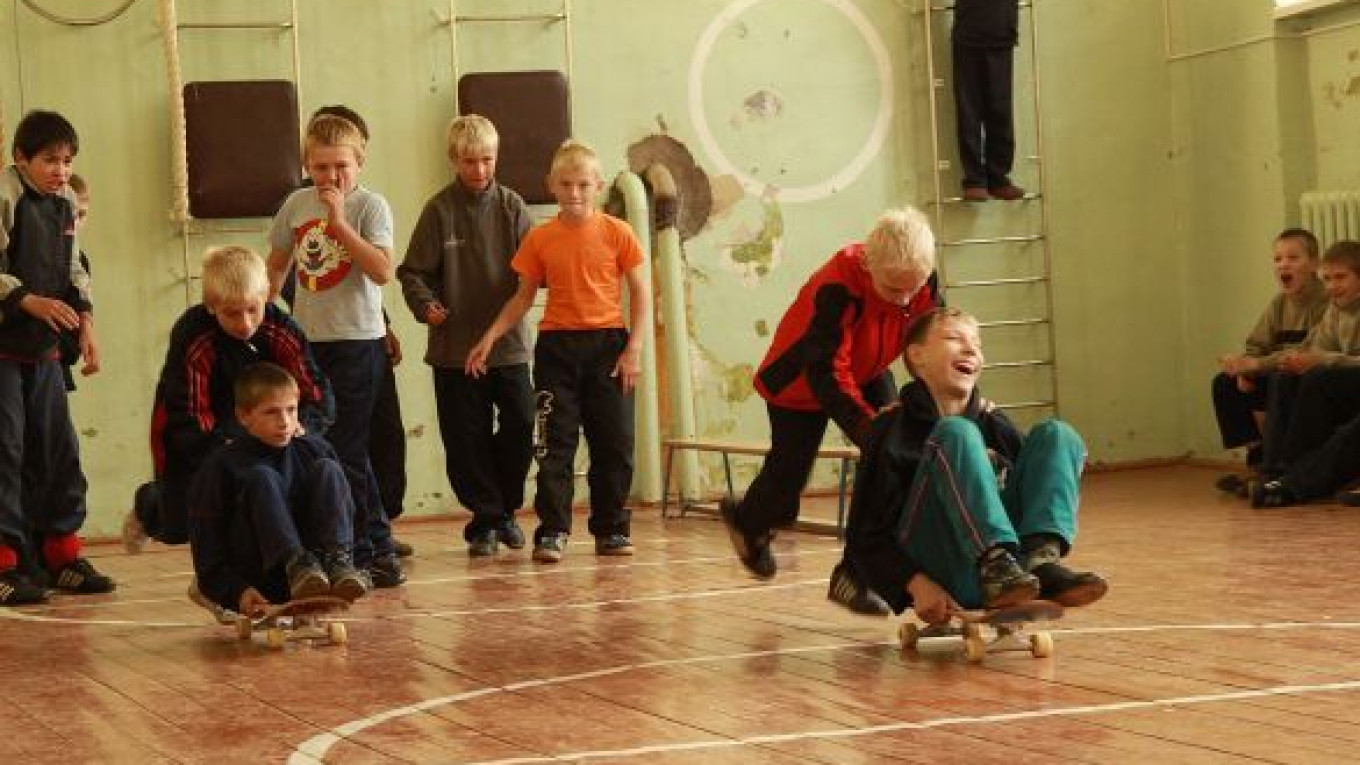Russian and U.S. officials hailed the State Duma's ratification Tuesday of a long-awaited treaty designed to protect children involved in international adoptions.
But people familiar with international adoptions played down the significance of the agreement, saying it is unclear what, if any, impact it would have on an already highly regulated process.
The treaty stipulates 80 hours of obligatory training, certification and monitoring regimes for adoptive parents in both countries, including psychological tests.
Children's ombudsman Pavel Astakhov said on Twitter that the ratification is the beginning of a new era and stressed that Russia would demand that the United States carry out the new regime in full.
"I'm glad that deputies heard the voice of reason and justice and ratified the treaty. We couldn't continue on the path we were on," Astakhov said subsequently by telephone.
Russian officials demanded the treaty after a string of abuse scandals involving U.S. parents and adopted Russian children, culminating with a 2010 incident in which a U.S. mother sent her 7-year-old son alone on a plane back to Russia.
The U.S. State Department's Office of Children's Issues called the ratification a "significant milestone" toward final approval of the agreement, according to a statement[moscow.usembassy.gov/news_071012.html] on the U.S. Embassy's website.
The treaty must now be approved by the Federation Council and signed by President Vladimir Putin, steps that are thought to be formalities. It does not require approval by the U.S. Congress.
While the Russians fought hard for the treaty, people involved in adoptions said it would bring only slight changes.
"Some exams that were sometimes optional will now be obligatory," said a person who works for an international adoptions agency. He asked for anonymity to protect his work. "As for the new 80 hours of training, nobody knows what it will consist of or who will carry it out."
Alexei Rudov, who helps facilitate domestic adoptions, dismissed the treaty as a publicity stunt.
"It's a way for the government to show the people that they're 'taking care of children,'" he said by e-mail. "It's simple and eye-catching, but is it effective?"
Another adoptions agency worker, who also asked to remain anonymous, said the process is already bureaucratic enough and argued that there is only so much monitoring agencies can do.
"You can do all the checks you want, but you can't predict everything," he said. "Some people just have sick minds. But you need to keep in mind that the number of sad stories is minuscule compared to the total number of adoptions."
An estimated 60,000 adopted Russian children are living in the United States. Seventeen have died at the hands of their new parents in recent years, according to Russian government figures.
Although the treaty applies to adoptions in both directions, in practice it applies almost exclusively to the United States, which, incidentally, adopted more Russian children last year — 956 — than any other country.
It is unclear how many American children have been adopted by Russians, but the number is believed to be minuscule.
About 125,000 Russian children are currently awaiting adoption, RIA-Novosti reported, citing the Education and Science Ministry.
Under the terms of the treaty, a child will be eligible for international adoption if no local family can be found.
At Russia's insistence, adoptions by same-sex couples would be forbidden.
Along with ratifying the treaty, the Duma urged the government to consider signing additional agreements with the United States to spell out steps for returning a child to his or her home country in case of rejection by the new family.
Such a protocol might have prevented the Tennessee woman from sending her adopted son back to Russia in April 2010 with a letter saying the child was disturbed and violent and she didn't want him anymore.
The incident created an international uproar and prompted threats from Russia to put a moratorium on adoptions with the United States.
A Message from The Moscow Times:
Dear readers,
We are facing unprecedented challenges. Russia's Prosecutor General's Office has designated The Moscow Times as an "undesirable" organization, criminalizing our work and putting our staff at risk of prosecution. This follows our earlier unjust labeling as a "foreign agent."
These actions are direct attempts to silence independent journalism in Russia. The authorities claim our work "discredits the decisions of the Russian leadership." We see things differently: we strive to provide accurate, unbiased reporting on Russia.
We, the journalists of The Moscow Times, refuse to be silenced. But to continue our work, we need your help.
Your support, no matter how small, makes a world of difference. If you can, please support us monthly starting from just $2. It's quick to set up, and every contribution makes a significant impact.
By supporting The Moscow Times, you're defending open, independent journalism in the face of repression. Thank you for standing with us.
Remind me later.






